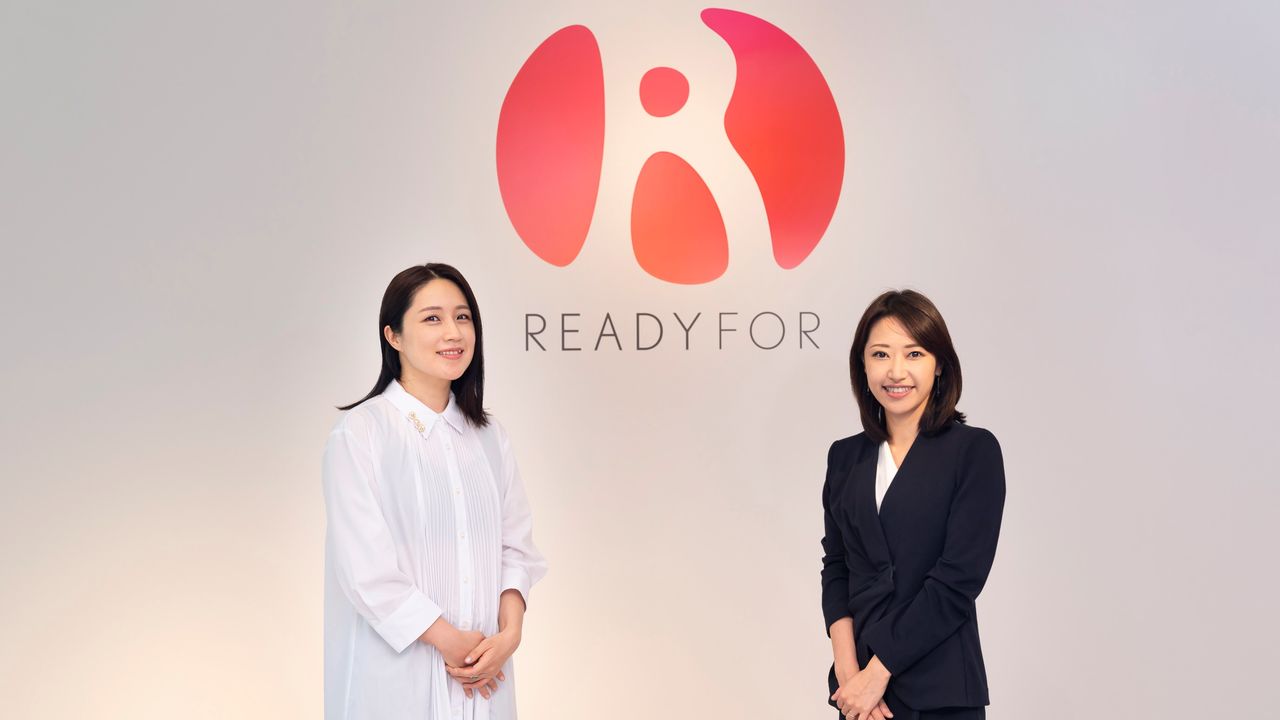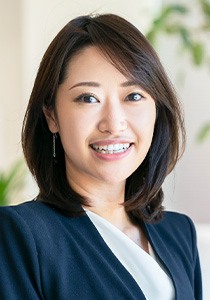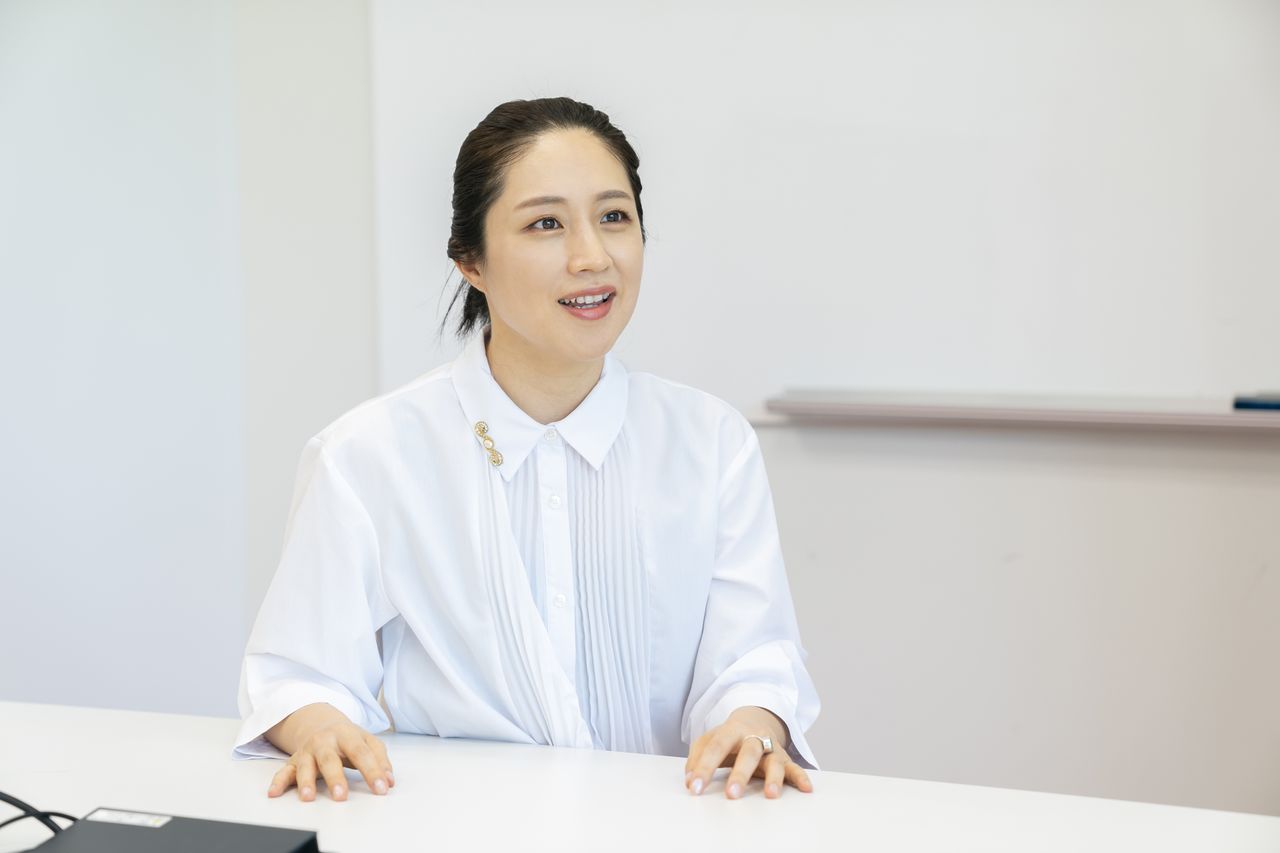
Face-to-Face with Japan’s Female Leaders
Mera Haruka: Crowdfunding Platform Readyfor CEO Focused on Changing Society for the Better
Society- English
- 日本語
- 简体字
- 繁體字
- Français
- Español
- العربية
- Русский
Diverse Views
INUYAMA KAMIKO When we worked together on the Kodomo Gift project, an aspect of our partnership that impressed me was the success we had in establishing a counseling program for abusive parents. Children often end up back in the care of an abusive mother or father, which makes counseling and other measures aimed at breaking the cycle of abuse imperative. This is a difficult idea to get across, though, as society tends to demonize perpetrators of child abuse and to view them as unworthy of assistance. Fortunately, staff at Readyfor helped craft the language of the project’s crowdfunding page in a way that won donors over to our cause.
MERA HARUKA Readyfor’s curators take great pride in providing expert advice on how to create pages and advertising strategies that get campaigns to their funding goals. The emphasis is on communicating to a broad spectrum of people. With the Kodomo Gift project, for instance, asking for money to create counseling programs for child abusers naturally raised questions in potential donors’ minds. What happens to the young victims? Are reform efforts really effective? A narrowly focused message would not have been as effective as one that openly and honestly addresses different facets of the issue.
We want to people to see things from more than one or two angles. To do this, our curators carefully consider the tone of each campaign to assess whether it is in line with the stated mission of the project. Staff quickly step in with advice if the message is overly focused on inciting an emotional response to a topic rather than giving potential donors a fuller picture of the campaign’s goals.
Lessons of Cancer
INUYAMA Readyfor helps organizations active in corners of society traditionally underserved by capitalism to directly raise money from the public. What is the genesis of this idea?
MERA As a university student, I thought my only option after graduating was to go work for a company. But that changed in my third year of school when I met University of Tokyo professor and artificial intelligence expert Matsuo Yutaka. I collaborated with his lab on a number of research projects, including the development of an AI-driven search engine called Spysee that made it easier to find information about people online.
I was interested in how the Internet can empower, and I wanted to use the web to draw attention to individuals who were making a difference but didn’t typically stand out. It was exciting to think that I could change society with IT. This wasn’t likely to happen if I joined a company, though, which led me to entrepreneurship.
Another factor was being diagnosed with cancer three years ago. Over the seven months I received treatment for the disease, I thought a lot about my life. Facing the prospect of dying young inspired me to dedicate my life to benefiting others. I took an interest in crowdfunding platforms, but I noticed that the narrow focus of most excluded an array of ventures that could potentially benefit from the investment model. Money tends to follow established lanes, and I felt that society suffers from this unequal distribution of monetary resources. I set out to make it easier for money to flow into underfunded areas.
A Sense of Mission
INUYAMA Health crises like the one you experienced frequently bring unseen issues to the surface, highlighting inequalities. We’ve seen this in the stress the coronavirus pandemic has put on the medical system.
MERA In battling cancer, I learned that new treatments are being developed all the time. However, money for research into therapies targeting rarer forms of the disease is harder to come by because there are fewer patients. There’s a similar dynamic at play in responses to the coronavirus, with governments and medical experts prioritizing certain approaches to stop the spread of the disease over other options. The important thing, though, is to have a way for people throughout society to support new and different approaches for tackling the problems of such a wide-reaching crisis.
INUYAMA In the Kodomo Gift project, I found that to effectively tackle social problems, individuals and private businesses need to be able to fill the gaps left in the government’s response. However, the support structure is not always there. For instance, there are numerous organizations that support disadvantaged children, but many of them struggle to find the money needed to fully carry out their activities. Seeing this, we set up the project with the aim of providing monetary assistance so that groups could put their ideas and know-how to work.
MERA For new concepts and approaches to take hold and move society forward, there needs to be a more equal distribution of money. I feel extremely fortunate to have the technical expertise to be able to devote my life to forging new funding avenues.
INUYAMA You are remarkable in having found your life’s calling at such a young age. In my case, my daughter is a source of inspiration and motivation. This impresses on me the role our surroundings play in determining the paths that we take. There are so many children who are held back by their circumstances, which is why supporting groups working to improve the opportunities available to disadvantaged children is so important for the betterment of society.
Positive Approaches
INUYAMA In my view, a successful individual is obliged to reinvest some of what they have gained back into society. No person gets to where they are alone, and there’s a moral responsibility to pay it forward.
MERA I tend to agree with you, but I wasn’t motivated by a sense of duty to give back so much as a strong desire to rectify social inequalities. Once an issue gets on my radar, I feel I have to do something about it. However, rather than publicly advocating for a cause, which I’m not particularly good at anyway, I prefer to engineer systems that stimulate social change.
INUYAMA The crowdfunding platform you helped create has done just that, benefiting innumerable people in the process.
MERA Readyfor is geared toward campaigns addressing social issues. Rather than tugging on people’s heartstrings, we set out to create funding pages that set a positive tone. It’s all too easy for online conversations to turn negative these days, which is why we limit the comment section to people who have contributed money. We want donor voices to help drive the success of a campaign. Visitors to a page are more likely to support a cause if they read about what motivated others to contribute. It creates a virtuous cycle—something we need more of in society.
INUYAMA In the past I’ve been reluctant to do more than drop a few spare coins into a collection jar of a charity group I knew little about. I’ve also learned about causes on television that I wanted to support but didn’t know how. I find these situations demoralizing. But Readyfor lowers the hurdle for donating by showing donors exactly where their money is going. Since there are clear returns, people can feel good about contributing.
MERA In Japan, donating tends to be seen as a lofty act. People are often hesitant to contribute to a cause without forming a firm commitment first, almost like they’re unsure whether they have the right to get involved. In establishing Readyfor, it was critical to simplify the act of giving, which the crowdfunding model does so well.
It increases people’s options to contribute, turning donating into a form of personal expression. A person can support a major issue or a cause closer to home. The pandemic, for instance, has hit the service and entertainment sectors particularly hard. A person who enjoys art can donate to an art project, someone who likes the theater can donate to a drama troop, or a foodie who loves ramen can donate to a favorite noodle shop. There really is no limit.
Greater Social Impact
INUYAMA There’s a tendency to focus on gender when talking about a successful woman, but not with men. You, for example, are frequently introduced as a “female entrepreneur.” This to me stems from Japan’s long tradition of seeing women as socially inferior to men. What are your thoughts?
MERA I could insist on being introducing just as an entrepreneur, but that would only be putting a bandage over the problem. I know that many of the offers to speak that I receive are predicated on the fact that I’m a woman. But rather than worrying over the motives behind an invitation to share my ideas, I prefer to continue focusing on impacting society so that at the end of the day it’s my success that stands out first and foremost.
INUYAMA I find that society’s focus on gender downplays the abilities of women who are equally successful as their male counterparts. Do you think society will reach a point where merit will be more important in defining a person than sex?
MERA I think we’re gradually moving away from the old value system of separating everything into distinct categories, including by gender. The business world is diversifying rapidly. I find that most entrepreneurs from my generation give little regard to things like age or whether a person is a man or woman when considering an individual’s success. It’s more about what they’ve achieved.
You can see a similar shift in corporate values. In the past firms lauded top performing staff with titles like “king of sales.” But today there’s a growing focus on fostering group cohesion, such as emphasizing teamwork over personal achievements. I think the overall trend is toward greater diversity, as illustrated by a growing number of businesses that list goals like building an inclusive society as part of their missions and corporate visions.
Greener Pastures
INUYAMA I’ve heard you say that anyone can fulfill their potential, given the right environment. I find this idea inspiring, particularly as society diversifies and more opportunities become available .
MERA Yes, but since our surroundings play such an important role in developing our views and opinions, it’s vital to give children environments where diversity is valued. If children are brought up believing in traditional gender or social roles, these prejudices will influence their behavior and constrain their choices. If society is going to thrive, children need the opportunity to follow their talents into whatever fields they lead.
INUYAMA Teaching people to believe in themselves is an important factor in this, especially since self-confidence is hard to regain once it’s lost. It’s critical for individuals in poor circumstances to realize that other options are available. With a little guidance, they can find an environment that’s better suited to their strong points.
MERA The environment you find yourself in at a given time isn’t everything; it’s not some absolute you’re stuck with. This is something I am trying to get as many people as possible to realize.
INUYAMA The feeling that we’re unable to choose our own environment often begins with a vague sense of being hemmed in, and it can rob us of our very ability to achieve happiness. When I was a student I felt the seeds of this myself—sure I had food to eat, and I was going to school, but there was this dissatisfaction with the life I was living. This boredom. Knowing that we can tackle those problems is key.
Finally, what are your goals going forward?
MERA Ultimately, I would like to remove every social barrier that holds people back and make it so all people have an equal opportunity to pursue their dreams. I know the chances of achieving this in my lifetime are slim, but I hope to make progress toward this goal by building systems that address core social problems. The greater diversity of people there are working to improve society makes it a happier and more fulfilling place.
(Originally published in Japanese and edited for length and clarity by Hayashida Junko. Banner photo: Inuyama Kamiko, left, and Mera Haruka. All photos © Uwadaira Tsunebumi.)


